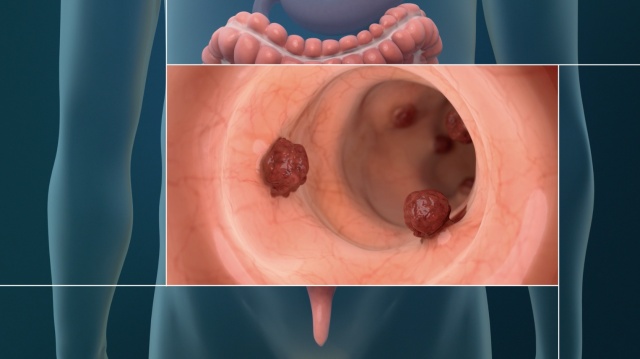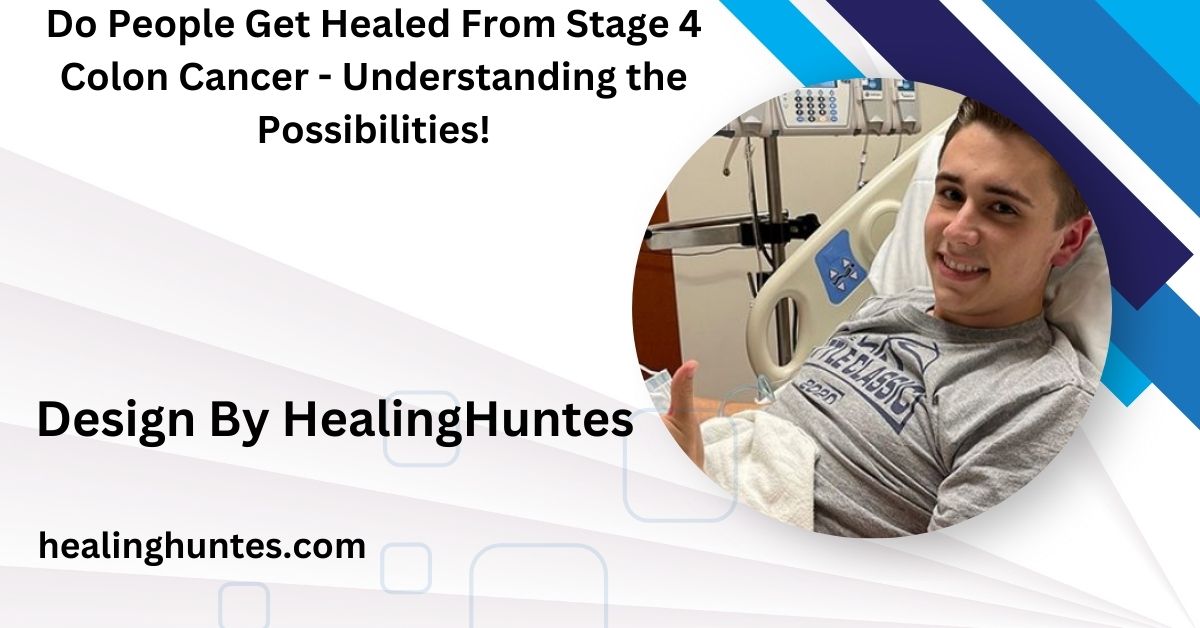Do People Get Healed From Stage 4 Colon Cancer – Understanding the Possibilities!
While Stage 4 colon cancer is difficult to cure, treatment advancements have improved survival rates and quality of life for many patients.
Here’s what you should know about Stage 4 colon cancer treatments, survival rates, and supportive care options.
What is Stage 4 Colon Cancer:

Stage 4 colon cancer refers to cancer that has metastasized, meaning it has spread beyond the colon. This stage is challenging to treat due to the cancer’s spread to other organs, but advancements in medical care give some patients better chances of extended survival and remission. Treatment choices vary based on the extent of the spread and individual health factors.
Characteristics of Stage 4 Colon Cancer:
- Widespread Cancer: Cancer spreads to organs like the liver, lungs, or distant lymph nodes.
- Complex Treatment Plans: Treatment involves a combination of therapies due to metastasis.
- Individualized Prognosis: Outcomes depend on various factors, including age, health, and the response to treatment.
Survival Rates for Stage 4 Colon Cancer:
Average Survival Rates:
The average 5-year survival rate for Stage 4 colon cancer is around 14%, though some patients live longer with specialized treatments. Survival varies widely due to the individual nature of the disease. Recent advances, particularly in targeted therapies and immunotherapy, have improved outcomes for some patients.
Also Read: How Do You Heal A Cut Tongue – Step-by-Step Healing Guide!
Factors Influencing Survival Rates:
- Age and Health: Younger, healthier individuals tend to respond better to treatment.
- Response to Therapy: Some patients may respond exceptionally well to certain therapies.
- Advances in Treatment: Newer treatments, such as immunotherapy, are showing promising results.
Treatment Options for Stage 4 Colon Cancer:

Surgical Treatments:
In some cases, surgery can be an option to remove tumors, even in Stage 4 cases. Surgeons may attempt to resect the primary tumor or metastatic growths, which can improve the patient’s quality of life and potentially extend survival.
- Tumor Resection: Removal of the main tumor to prevent complications.
- Liver Resection: Removing liver metastases if confined to specific areas.
- Palliative Surgery: Surgery to relieve symptoms without aiming for a cure.
Chemotherapy:
Chemotherapy remains a mainstay of treatment for Stage 4 colon cancer, aiming to reduce tumor size, alleviate symptoms, and improve quality of life.
- Systemic Treatment: Targets cancer cells throughout the body.
- Palliative Focus: Helps manage symptoms and can improve daily comfort.
- Combination Therapy: Often combined with other treatments for greater effect.
Also Read: How Long Does It Take For Tattoos To Heal – Healing Tattoos Explained!
Targeted Therapy and Immunotherapy:
Targeted therapies and immunotherapy represent newer treatment options, specifically designed to target cancer cells or stimulate the immune system to fight cancer more effectively.
- Targeted Therapy: Blocks specific proteins that cancer cells rely on.
- Immunotherapy: Uses the body’s immune system to attack cancer.
- Clinical Trials: Ongoing research often offers patients access to new therapies.
Factors That Influence Treatment Effectiveness:

Patient Health and Fitness:
Healthier patients may respond better to treatments due to their bodies’ ability to cope with the demands of cancer therapies.
- Fitness Level: Improved fitness aids in handling intensive treatments.
- Comorbidities: Conditions like diabetes may complicate treatment.
- Age: Younger patients often fare better with aggressive therapies.
Genetic Factors:
Genetic testing can help determine which treatments may be most effective for a particular individual, especially with targeted therapies.
- Gene Mutations: Some mutations respond well to targeted treatments.
- Personalized Therapy: Genetic insights lead to more effective, customized treatments.
Also Read: How Long Does It take A Muscle Strain To Heal – Healing Muscle Strains Quickly!
Role of Clinical Trials:
Access to Innovative Treatments:
Clinical trials provide patients with access to cutting-edge therapies that may not yet be available in standard care. This is particularly valuable for patients with advanced cancer who need new options.
- Experimental Treatments: Testing new drugs and combinations.
- Progress Tracking: Clinical trials contribute to cancer research advancements.
- Informed Choices: Patients can choose to participate after consulting their medical team.
Quality of Life During Treatment:

Managing Symptoms with Palliative Care:
For those with advanced cancer, palliative care helps manage symptoms like pain, fatigue, and digestive issues, improving day-to-day comfort.
- Pain Management: Tailored to individual needs for maximum relief.
- Symptom Relief: Helps patients maintain a more normal routine.
- Emotional Support: Mental health care is an important component of palliative care.
Balancing Treatment and Lifestyle:
Treatments for Stage 4 colon cancer can be demanding, but maintaining a quality lifestyle is essential. Patients often benefit from adjusting daily activities to manage energy levels and stress.
- Adapting Activities: Balancing work, rest, and hobbies as energy allows.
- Physical Activity: Light exercise can reduce fatigue and improve mood.
- Social Connections: Family support can boost emotional health.
Also Read: How Long Does Plantar Fasciitis Take To Heal – Top Tips and Treatments!
Prognosis and Hope for the Future:
Advances in Cancer Research:
While Stage 4 colon cancer has a lower survival rate, medical advancements continue to improve options and hope for patients.
- Ongoing Research: New therapies are frequently in development.
- Better Outcomes: Targeted and immunotherapies offer new hope.
- Supportive Treatments: Palliative care enhances quality of life for many patients.
Maintaining a Positive Outlook:
While a diagnosis of Stage 4 colon cancer is serious, many patients find solace in improved treatment options, clinical trials, and supportive care systems that provide a higher quality of life.
- Support Networks: Family, friends, and groups offer emotional support.
- Personal Strength: A positive outlook often aids in coping.
- Future Options: New treatments continue to emerge, offering hope.
When to Seek Medical Help:
Recognizing Complications:
Certain symptoms may indicate the need for medical help beyond routine treatment, including signs of infection or persistent pain.
- Uncontrolled Pain: Persistent pain despite treatments requires attention.
- Signs of Infection: Swelling, redness, or discharge needs prompt care.
- Difficulty Breathing: If cancer has affected the lungs, watch for breathing issues.
FAQ’s
1. Can Stage 4 colon cancer be cured?
Complete remission is rare, but treatments can help manage symptoms and extend survival for many patients. Survival rates depend on various factors like health and response to therapy.
2. What are the symptoms of Stage 4 colon cancer?
Common symptoms include abdominal pain, unexplained weight loss, fatigue, and changes in bowel habits. Always consult a healthcare provider if you experience these symptoms.
3. How long can you live with Stage 4 colon cancer?
Survival rates vary widely, with some patients living several years due to modern therapies. The average 5-year survival rate is approximately 14%, though individual outcomes vary.
4. What role do clinical trials play?
Clinical trials provide access to new treatments and therapies, often essential for patients needing additional treatment options.
5. How can I support someone with Stage 4 colon cancer?
Emotional support, helping with daily tasks, and attending medical appointments are valuable ways to support a loved one.
Conclusion
While a diagnosis of Stage 4 colon cancer can feel overwhelming, advances in medical treatments offer hope for improved outcomes and extended life. Although this stage of cancer is challenging to cure, many patients find meaningful relief and improved quality of life through personalized treatment options such as surgery, chemotherapy, targeted therapy, and immunotherapy.






